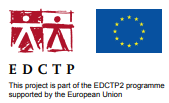
Safety and efficacy of high-dose rifampicin in TB-HIV co-infected patients on efavirenz-based antiretroviral therapy (SAEFRIF Project)
PI/Fellow: Dr. Christine Sekaggya Wiltshire
Tuberculosis (TB) is a public health burden that causes substantial morbidity and mortality particularly in sub-Saharan Africa. Although there have been considerable advances in TB control new advances in TB treatment are needed. A growing body of evidence has indicated that the current dose of rifampicin (10mg/kg) is inadequate. Several studies have suggested that dose escalation (to 20-35mg/kg) is safe, and that higher doses (35mg/kg) may accelerate clearance of TB bacteria from the sputum of infected individuals. However, these studies have almost entirely been completed on HIV negative TB patients, or TB-HIV co-infected patients without severe immunosuppression who are not yet receiving antiretroviral therapy (ART).
We are conducting an open label phase II clinical trial among patients with confirmed pulmonary TB to determine the effect of higher doses of rifampicin (35mg/kg) on efavirenz and dolutegravir concentrations and the safety of TB regimens containing high dose rifampicin in TB-HIV infected patients also receiving efavirenz and dolutegravir -based ART.
Participants are followed up with liver and renal function tests every two weeks and sputum cultures performed after 8 weeks of treatment. We will compare pharmacokinetic parameters of the ART in patients on high dose and standard dose rifampicin. We will also compare the proportion of participants with negative sputum cultures at the end of 8 weeks of treatment between the treatment arms.


